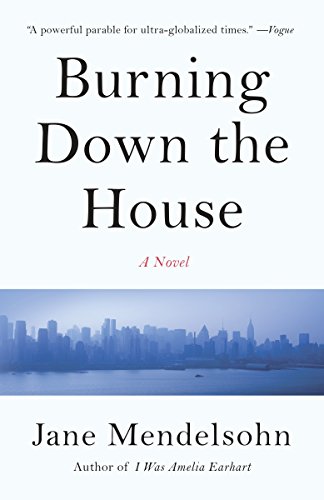Women’s Work
An undoubtedly post-apocalyptic tale of a Last War sending gender-roles to land on their topsy-turvy heads in an out-skirted community, Women’s Work is empowering and exhilarating. Kari Aguila creates a backdrop of a revolutionary society, except with no typical male bravado at the center, but instead infiltrated with laborious, self-sufficient women, who are by no means gender-normative or typical and are, by every sense of the word, avant-garde in their beings. Such is this matriarchal society that Aguila isolates in the novel, which sends many decades-old philosophies into a downward twist; the main character, Kate, is significant in the women’s uprising against men. As we start the story, the patriarchal system has been destroyed by the war, and there are few men left alive in the neighborhood—mostly those husbands who survived the war and fought alongside their wives—but the majority of the gender are obliterated by the alpha-females or have become stragglers in the wild. We enter this futuristic saga following major role reversals.
Kari Aguila revisits the idea of what it takes to be a man in a new society and the implications of how it is reshaped with a resourceful convention, a rather interesting and daring portrayal of men with stereotypical feminine qualities and chores, like the long-contested kitchen job and domestic ease, whereas women are primal and thrilling as hunters, skilled defenders with weaponry, home repair workers and merchants at the market, and still keep a nurturing and parenting spirit with their own children and the children of the community. Nevertheless, women had to form armies and resistant forces because “to stop the horror of the war…they must first fight before they could make peace.” Much of the action in the novel is women struggling between being strong-willed and oppressive, having to be able to protect themselves against male organization but also having to make sure they don’t turn into the very thing they had feared most in men before the Last War: their nature of violence.
Women’s Work is by every definition a progressive, literary text, but it speaks beyond the fiction world and to the world of grandeur; it raises a lot of startling and imperative issues about what it takes to keep peace in a neighborhood, the intentions of women and peaceful solutions, what is gender equality, and the overall function of gender accountability in the unraveling threads of the social order. Though an extremely utopian and dream-like standing of women’s affairs in relation to men, the conditions of the community and sequence of events force a scholarly question: is this really gender equality as the true spirit of feminism deems it, or is it the exact same thing men have done to women for centuries, but with a palpable and decisive reasoning behind the old gender gambit?
The novel takes an unforeseen turn when a strange man and his sickly boy appear on Kate’s doorstep one day, leading to a series of visits, shared experiences, and a dangerous closeness with having them live in the shed, Kate is then forced to choose between protecting her family and this alienated man and boy over protecting her fellow women kin and the neighborhood they fought so painstakingly to create.
Women’s Work challenges gender as we know it: a truly ambitious and largely indicative text of past and present theory and preoccupations. A commendable book, a timely perspective and critique on the thriving human condition and state of gender affairs and women’s rights world-wide. Kari Aguila is a pioneer for crafting such an overdue and particularly necessary contribution for readers everywhere.
| Author | |
|---|---|
| Star Count | 5/5 |
| Format | Trade |
| Page Count | 290 pages |
| Publisher | Kari Aguila |
| Publish Date | 18-Nov-2013 |
| ISBN | 9780991165001 |
| Bookshop.org | Buy this Book |
| Issue | April 2014 |
| Category | Modern Literature |
| Share |







Reviews
There are no reviews yet.